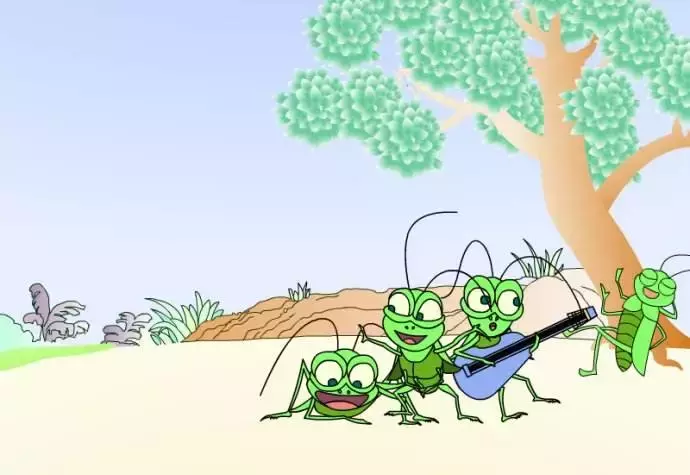Idioms, which are part of Chinese culture, are highly condensed vocabulary that perfectly summarizes an event or a concept and forms them. Idioms, mostly from ancient cultural texts or poetry articles, are circulated endlessly with their concise, fixed forms and accurate and vivid conveying of rich and colorful language information.
According to incomplete statistics, there are more than 30,000 Chinese idioms. There are many idioms, and it is inevitable that some "twins" will arise, and some "twins" will not only look like each other, but also have almost exactly the same meaning of words; such as self-defeat and loss; high heaven and thick earth and heavenly height; endless bitter sea and bitter sea; exaggerated words and exaggerations, and so on.
There are also idioms "twins", which look very similar, but the meaning of words is very different, which requires us to pay special attention when learning idioms, so as not to be careless and the words do not meet the intention.
Below, we will share 10 pairs of idioms that look very similar and have very different meanings of words, "twins".

1, love money as fate / love as fate.
Two idioms with exactly the same pronunciation are two completely different realms.
Love of money as fate, is an uncompromising derogatory term, is to describe a person's greed for money, miserly;
Loving talent as fate means cherishing talent as cherishing one's own life, which is to describe someone who cherishes talent very much.
2. The Ambition of the Bird / The Bird is coming.
The Ambition of the Birds of the Great, from the "Lü Shi Shi Rong", "The Qi of Fu Ji, the Ambition of the Birds, those who have the hearts of the people, sincerity." "It's about describing a person with big ambitions.
The Great Crane is coming, from Mencius, "Let Yi Qiu teach the two people Yi, one of them concentrates, but Yi Qiu listens." Although one listened to it, he thought that a great bird was coming, and he thought of the bow and shot it, although he learned from it, he was like a fool. "It is to describe a person who is not attentive in doing things, who is single-minded and has other needs.
3. Live up to expectations/live up to expectations.
Living up to expectations means living up to everyone's expectations;
Unpopular means not convincing.
4. Forward and successor/former servant and successor.
Again, this is a pair of idioms that are extremely similar and easy to be confused about.
Forward and backward refers to the heroic progress of the person in front, and the person behind follows closely;
The former servant and the successor refer to the person in front of him falling, and the person behind him following. It describes the spirit of not being afraid of sacrifice and moving forward courageously.
5. Crane hair chicken skin / crane hair childlike face.
Crane hair chicken skin, from the Northern Zhou Yuxin's "Bamboo Stick Endowment", "Zi Lao Yi, crane hair chicken skin, unkempt teeth." "It is to describe the appearance of an old man who is very old;
Crane hair childlike face, from the Tang Dynasty Tian Ying's "Sleepwalking Luofu", "self-proclaimed is not a god nor a fairy, crane hair childlike face is incomparable". Describe an elderly man with good looks and strong spirits.
6. Tiger Vision Eagle Eye / Tiger Eye Eagle Yang.
Tiger-eyed eagle gaze refers to the fierce and sharp gaze like a tiger and an eagle, figuratively being spied upon by a powerful enemy;
Tiger vision eagle Yang, refers to soaring like an eagle, as majestic as a tiger, describing a person is very imposing, also written eagle Yang tiger vision, The Qing Dynasty Huang Shulin has a poem, "The Li family father and son are heavenly, and the eagle Yang tiger looks at the sky."
7. One's own view/one hole view.
Self-opinion, refers to a person's opinion;
A hole view refers to a view seen from a small hole, such as a narrow and one-sided view.
8, high mountains and long water / high mountains and low water.
The mountains are high and the water is long, from Liu Yuxi's "Wangfu", "The dragon gate does not see the clouds and fog, and the trees and trees are long and the mountains are high and the water is long". It refers to being as tall as a mountain and as long as water. The metaphor is a person's high moral character and far-reaching influence.
High mountains and low waters refer to unexpected events or misfortunes. Most of the time, it refers to the death of a person.
9, no doubt / no beak.
Needless to say, it means that there is no need to doubt;
Needless to say, it means that there is no need for others to interject.
10. Round zero to whole/round to zero.
These two idioms are simple and you can see what they mean at first glance. But it means the exact opposite. It should be noted that we must not say that "zero" and "whole" are reversed. Similar to this, there are also things like "doing more with less" and "doing more with less".